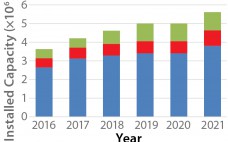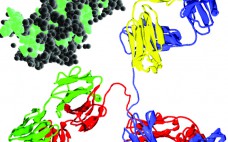World Vaccine Congress Names “Best CMO” At its annual meeting in Washington, DC, this past March, the World Vaccine Congress named Paragon Bioservices, Inc., as the “Best Contract Manufacturing Organization” (CMO) for 2016. The annual Vaccine Industry Excellence (ViE) Awards honor the industry’s most outstanding achievements in vaccine development around the world. This award is based on the service range in niche and core therapeutic areas, methods of performance improvement, attention to and quality of relationships with clients, reaching milestones…
May 2016 Supplement
May Supplement Introduction: The Evolving Outsourcing Culture
When I began recruiting contract manufacturing organizations (CMOs) and contract development and manufacturing organizations (CDMOs) to join the Pharma & Biopharma Outsourcing Association two years ago, some of the biologics-focused companies were concerned about being in a trade association alongside small-molecule–focused providers. It wasn’t quite “Upstairs, Downstairs,” much less a Sharks vs. Jets rivalry, but they weren’t sure whether my big-tent approach was viable. (For you millennials in the audience, please replace those references with “Downton Abbey” and “Batman v.…
From CMO to CDMO: Opportunities for Specializing and Innovation
Biopharmaceutical contract manufacturing organizations (CMOs) were initially enabled when the requirement for a company to file for both an establishment license application and a product licensing application transitioned to the current format of a biologics license application (BLA) submission for biological products (1). The initial focus of such CMOs was to provide large-scale, commercial manufacturing for companies that had already developed and validated bio manufacturing processes. Consequently, CMOs were generally formed as stand-alone service providers that “rented” manufacturing capacity to…
Best Practices for Technology Transfers Across a Global Network: A Discussion with Patheon’s Paul Jorjorian
A strategic technology transfer plan is the touchstone of global biomanufacturing enterprise, especially for contract service providers that must meet the needs of customers located across several continents. Like their clients, contract development and manufacturing organizations (CDMOs) are facing shortened timelines and cost pressures. They are turning to their process engineers and technology transfer teams to ensure communication with sponsor companies and streamline the transfer of information and critical activities between process development (PD) and manufacturing. In his presentation at…
Outsourcing to Enhance Assurance of Supply: Application of Counterintuitive Supply Chain Strategies — A Case Study
Single-use technologies have transformed biopharmaceutical manufacturing by providing tremendous and proven opportunities to reduce costs, improve flexibility, and shorten cycle times. The expansion of such technologies into commercial production has naturally raised new challenges for both end users and suppliers, thus driving the need for a critical look at risks associated with their use. End users now face a new challenge: how to assess their own supply chains for robust assurance of supply. What is the suppliers’ responsibility in addressing…
Future Manufacturing Strategies for Biosimilars
Biosimilars are a relatively new subset of biopharmaceuticals, with the biotechnology industry finally maturing such that off-patent generic-type products increasingly will be entering major markets (1–3). So far, more than 20 biosimilars for a limited number of reference products have been approved in major markets, primarily the European Union. Only two products have been formally approved as biosimilars in the United States. For this rapidly growing industry sector, little consensus or authoritative information is available yet regarding how and where…
Outsourcing Biosimilars Development
A rapid increase in the number of companies working on development and registration of biosimilars has created a significant market for contract testing and manufacturing organizations (CTOs and CMOs) providing outsourced services specific to these products. Biosimilar developers turn to contract organizations when they lack either the internal capability or capacity for conducting certain work as well as when they require additional resources to bring products to market rapidly. A wide range of contract services are available, and each particular…
Critical Factors for Fill–Finish Manufacturing of Biologics
Over recent decades, protein-based therapeutics have emerged as key drivers of growth in the pharmaceutical industry. Drug development pipelines have filled with biologics, and a handful of monoclonal antibody (MAb) products have become some of the best-selling drugs around the world. Production of biotherapeutics is often challenging because of the inherent instability of these large, complex molecules. Their fragile nature has forced manufacturers to change how bulk drug substances (BDSs) are handled and final drug product is formulated, sterile filtered,…
Contract Manufacturing of Cell Therapies: A Conversation with MaSTherCell’s Eric Mathieu and Thibault Jonckheere
The work of developing advanced medical products is spreading around the globe, and with it comes specialized contract services. Far from a “one size fits all” approach to development, and with few platform technologies yet available, contract service providers in the advanced therapeutics space must focus on helping to move promising science into good manufacturing practice (GMP) environments, but with regulatory pathways and eventual harmonization still under development. One company that formed to address the specific needs of cell therapy…








